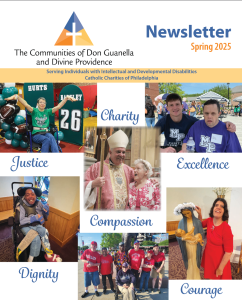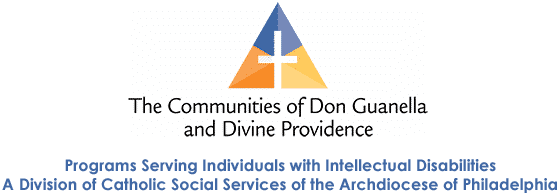[fusion_builder_container hundred_percent=”no” equal_height_columns=”no” menu_anchor=”” hide_on_mobile=”small-visibility,medium-visibility,large-visibility” class=”” id=”” background_color=”” background_image=”” background_position=”center center” background_repeat=”no-repeat” fade=”no” background_parallax=”none” parallax_speed=”0.3″ video_mp4=”” video_webm=”” video_ogv=”” video_url=”” video_aspect_ratio=”16:9″ video_loop=”yes” video_mute=”yes” overlay_color=”” video_preview_image=”” border_size=”” border_color=”” border_style=”solid” padding_top=”” padding_bottom=”” padding_left=”” padding_right=””][fusion_builder_row][fusion_builder_column type=”1_1″ layout=”1_1″ background_position=”left top” background_color=”” border_size=”” border_color=”” border_style=”solid” border_position=”all” spacing=”yes” background_image=”” background_repeat=”no-repeat” padding_top=”” padding_right=”” padding_bottom=”” padding_left=”” margin_top=”0px” margin_bottom=”0px” class=”” id=”” animation_type=”” animation_speed=”0.3″ animation_direction=”left” hide_on_mobile=”small-visibility,medium-visibility,large-visibility” center_content=”no” last=”no” min_height=”” hover_type=”none” link=””][fusion_text]
Those of us of a certain age have dutifully read in college the brilliant novel, The Plague, by Albert Camus. Considered by critics to be one of the best literary works of the second half of the 20th century, the book describes the onset and spread of a fictional bubonic plague in an Algerian city in the 1940’s.
Seeking to discover some existential understanding, if not solace, as we found ourselves immersed and threatened by the Covid crisis, I decided to re-read The Plague. I was utterly amazed and moved to learn that what Camus captured about 80 years ago has such vivid and poignant application to what we are experiencing today. I would like to share a few observations – gifts really that I gleaned reading this novel again.
After the story describes a full year of dread, death, and exhausting work, the fictional bubonic virus has finally been eclipsed in the town and it is able to reopen its gates. During the large public celebration with fireworks to commemorate the occasion, the narrator participant goes to his roof top to take in the joyous excitement, and vows to himself not to forget and disregard the many who died and the moral necessity “to bear witness on behalf of the victims, to at least leave a memory” of their suffering and meaningful lives.
Therefore, I want to recall in a profound sorrowful way all those individuals we lost to Covid – Jeannette, Bernadette, Robert, Debbie, James, Denis, Peter and Gerald, as well as Jerry, Anthony and Paul who also died during this time from other causes. My heart and prayers go out to family members, staff, and fellow residents who grieve the loss of these special people.
Besides accurately depicting the daily trials of the plague and the abject weariness it inflicts on society, Camus wrestles with existential and spiritual issues, such as the existence of evil in the world, the reality of human suffering, what are our individual responsibilities, and the foibles of human nature. The narrator near the end of the novel declares that “in the midst of such tribulations … one learns that there is more to admire in men than to despair.”
Given the undeniable dedication and sacrifice of five hundred or more Direct Support Professionals and nurses in our community, the narrator’s insight is not only valid, but perhaps even an understatement. Our employees are truly heroes as they put themselves at risk to serve others and did so consistently and compassionately. Clearly our Direct Support Professionals and nurses embody our Guanellian and core values, and we would not have survived this crisis without them.
I want to acknowledge the leadership team, including our two steadfast directors of nursing, Angela and Peg; our program leaders Patti, Jean, Liza, Jeanne, and Jolanda; and our four religious leaders, Fr. Dennis, Sr. Mary, Sr. Sue, and Fr. Amal. I also express my deep appreciation to all support staff from all levels of the organization who worked tirelessly behind the scenes.
Finally, as I reflect on the numerous explicit and nuanced dimension to this novel, I cannot forget to underline that The Plague is primarily an allegory – written by Camus in Paris when France was occupied by the Nazis. In other words, the depicted bubonic plague is a metaphor for fascism, a deadly social and political plague. Similarly, since Covid has exposed racial and class disparities in our society – exacerbated by the recent racial violence by police – many rightly see Covid as just not a lethal virus, but as a pernicious symbol of systemic injustice. This will be addressed in our next bulletin.
In conclusion, I want to express how grateful and blessed I feel to be part of this compassionate community. While we are not “out of the woods” yet in terms of Covid, I am both inspired and humbled by our many exceptional employees, who have kept people safe and arguably have saved lives.
[/fusion_text][/fusion_builder_column][/fusion_builder_row][/fusion_builder_container]

